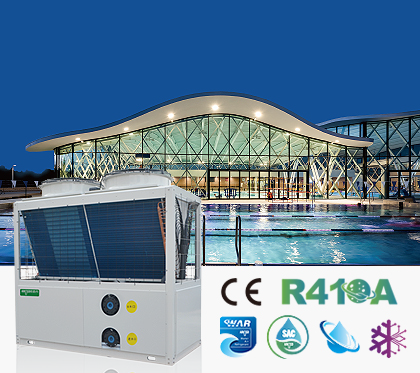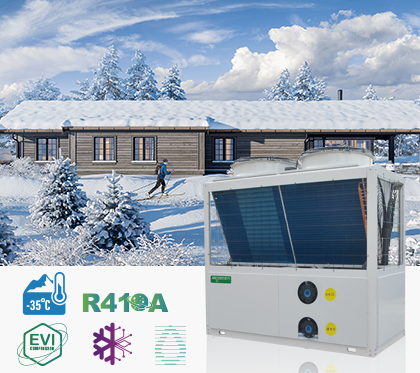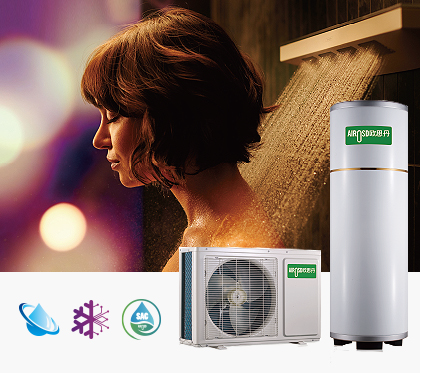Heat pumps are a sustainable heating and cooling solution that has gained popularity for their dual functionality and energy efficiency. When considering the adoption of a heat pump for your home or business, a key question often arises: 'What is the average lifespan of a heat pump?' The longevity of these systems is influenced by a myriad of factors, from the quality of the unit to the regularity of maintenance. In this comprehensive guide, we delve into what you can expect from the lifespan of a heat pump, how to enhance its durability, and the practices that can extend its service life beyond the average expectancy.
What Factors Affect The Lifespan Of Heat Pumps?
Several factors can impact the lifespan of a heat pump. The quality of the equipment and its installation, along with the local climate and usage patterns, play significant roles. High-quality heat pumps from reputed manufacturers have a longer lifespan than cheaper, lower-quality versions. Proper installation by trained personnel assures maximum performance and lifespan.
The local climate also affects the lifespan of a heat pump. Heat pumps are designed to work efficiently in a wide range of temperatures, but extreme weather conditions can put additional strain on the system. Harsh winters or hot summers may force the heat pump to operate harder, thereby decreasing its lifespan.

China Swimming Pool Inverter Heat Pump Factory
Average Lifespan of a Heat Pump
The average life expectancy of a heat pump typically ranges between 10 to 15 years. Nevertheless, with diligent maintenance and optimal operating conditions, heat pumps are not uncommon to exceed this range, operating efficiently for up to 20 years or more. It is crucial to recognize that these figures are not fixed and can be influenced by the specific circumstances of use, maintenance, and climate conditions.
Maintenance And Upkeep
Regular maintenance and upkeep are crucial for prolonging the lifespan of a heat pump. It is recommended to schedule annual inspections by a qualified technician to ensure optimal performance. The technician will check refrigerant levels, clean the coils, lubricate moving parts, and test electrical connections during these examinations. Air filters must be changed or cleaned on a regular basis to ensure proper operation.

Wholesale Sanitary Hot Water Heat Pump
Extending The Lifespan Of A Heat Pump
While the lifespan of a heat pump depends on various factors, there are steps you can take to maximize its longevity.
Choosing the Right Heat Pump for Longevity
When it's time to select a new heat pump, considering longevity from the start is key. AIROSD stands out as a premier provider of heat pumps, with a commitment to quality that extends the life of your investment. Our selection includes air-to-water heat pumps, geothermal heat pumps, and pool heat pumps, each designed with durability in mind. Explore our offerings to find a heat pump that aligns with your specific needs and benefits from our expertise in long-lasting, efficient heating and cooling solutions.
Regular Maintenance
As mentioned earlier, regular maintenance is crucial. By scheduling annual inspections and servicing, you can identify and address any potential issues early on. This proactive approach can prevent minor problems from escalating into major failures.
Proper Installation
A correct installation is critical for a heat pump's long-term functioning. Hiring a skilled specialist ensures that the system is properly sized, the ductwork is constructed and sealed correctly, and all electrical connections are secure. Improper installation can lead to reduced efficiency and premature wear and tear.

Air To Water Heat Pump Factory
Efficient Usage
Using your heat pump efficiently can help extend its lifespan. Avoid setting the thermostat to extreme temperatures, as it forces the system to work harder. Choose moderate settings instead, and think about utilizing programmable thermostats to alter temperatures depending on occupancy patterns. Furthermore, keeping the exterior unit clean and clear provides for improved ventilation and effective performance.
Conclusion
In conclusion, the life expectancy of a heat pump is a flexible figure, influenced by a spectrum of factors including maintenance, usage, and installation quality. While the typical lifespan is estimated at 10 to 15 years, strategic care and efficient usage can significantly prolong this period. If you're considering transitioning to a new, reliable heat pump, AIROSD is an excellent option. As an industry-leading heat pump manufacturer, we provide a diverse range of products designed to meet your heating and cooling needs with longevity in mind. Contact us to learn more and make an informed choice for your comfort and the environment.
FAQs
1. How Long Do Heat Pumps Typically Last?
The average life expectancy of a heat pump system is between 10 to 15 years, though many factors such as maintenance, installation quality, and climate can extend or shorten this lifespan. With proper care, some units can operate efficiently for over 20 years.
2. What Are the Signs That a Heat Pump Needs Replacing?
Signs that may indicate the need for a heat pump replacement include frequent repairs, declining efficiency, uneven heating or cooling, and the age of the unit being close to or beyond the average lifespan. If your heat pump is over 15 years old and experiencing these issues, it might be time to consider a new system.
3. Can Regular Maintenance Extend the Life of a Heat Pump?
Yes, regular maintenance is crucial for maximizing the life of a heat pump. Annual inspections by a qualified technician can help ensure optimal performance and identify any potential issues before they become major problems. Tasks such as cleaning or replacing air filters, checking refrigerant levels, and ensuring the system is free from debris all contribute to the longevity of the unit.



